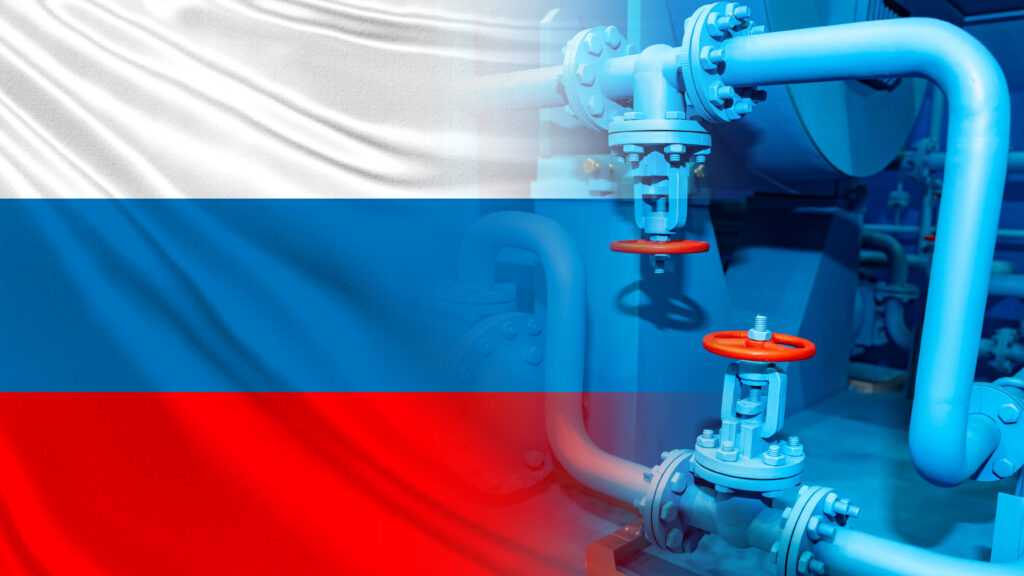The European Commission unveiled a significant new plan to end all imports of Russian energy by 2027. Under this roadmap, all 27 EU member states will be required to stop purchasing Russian gas, oil, and nuclear materials. The phase-out will begin with a ban on new and short-term contracts by the end of 2025. By 2027, long-term contracts, which currently account for two-thirds of Russian gas imports, must also be terminated. The Commission will also target illegal shipments, cracking down on shadow fleets smuggling Russian oil, and will stop all nuclear fuel imports from Russia.
New EU Plan to End Dependence on Russian Energy
The European Commission’s proposal makes it clear that even in the event of a peace settlement, the EU will not return to reliance on Russian energy sources. Each member state must submit a national plan outlining how they intend to eliminate Russian energy from their supply mix. Energy Commissioner Dan Jørgensen explained, “Putin weaponized gas. We must never put ourselves in that position again.” The new plan marks a decisive step towards the EU’s goal of achieving energy independence.
Russia Faces Major Economic Losses as the EU Shifts Energy Strategy
In 2024, the EU purchased significant quantities of Russian energy: 31.62 billion cubic meters (bcm) of Russian pipeline gas and 20.05 bcm of liquefied natural gas (LNG), representing 19% of total consumption. France, Spain, and Belgium received nearly 90% of all Russian LNG. Despite the ongoing transition to alternative energy sources, many European companies remain locked into long-term contracts with Russian energy suppliers, some of which extend until 2040.
To ease the transition, the European Commission is offering companies the ability to invoke “force majeure” clauses, which allow them to exit contracts due to extraordinary circumstances. Jørgensen assured EU companies that they will not face legal penalties for breaking contracts early. However, legal experts predict costly lawsuits, with ongoing disputes already totaling €18.5 billion. The EU plans to adopt the new measures via a qualified majority vote, which will bypass the need for unanimous approval and circumvent opposition from Hungary and Slovakia, two countries resistant to a complete ban on Russian energy.
EU’s Energy Independence Amid Legal Challenges and Trade Talks
The Commission’s roadmap comes at a critical moment during ongoing trade negotiations with the United States. Former U.S. President Donald Trump has been advocating for increased American LNG sales to Europe, hoping to balance the trade relationship. However, the EU has firmly rejected any return to dependence on Russian energy.
The Commission’s proposal avoids outright sanctions, which could alienate reluctant member states. Hungary and Slovakia, for instance, have strongly opposed a complete embargo on Russian energy. Both countries expressed frustration after Ukraine announced that it would stop Russian gas transit by the end of 2024, with Ukrainian President Volodymyr Zelenskyy declaring, “We won’t let them profit billions from our blood.”
Despite internal divisions within the EU, Brussels is determined to push forward with its plan. The Commission’s new strategy aims to steer European companies away from long-term Russian energy deals, even at the risk of legal battles. Analyst Elisabetta Cornago emphasized the importance of the move, calling it a crucial step toward phasing out Russian fossil fuel imports. While there are potential arbitration risks, Cornago believes the EU is finally taking serious action to reduce its reliance on Russian energy.
A Strategic Shift Towards Renewables and Energy Security
The EU’s proposal is part of a broader strategy to secure energy independence and reduce reliance on authoritarian regimes. By diversifying energy sources, increasing investment in renewable energy, and accelerating the transition to cleaner energy alternatives, the EU hopes to mitigate the risks associated with fossil fuel dependence.
As the EU works to reduce its reliance on Russian energy, the roadmap also highlights the importance of ensuring energy security for all member states. Despite the challenges and risks, the Commission’s ambitious plan signals the EU’s commitment to achieving long-term energy stability and sustainability.
The European Commission’s proposal will be closely monitored in the coming months, with national plans from each member state expected soon. The outcome of these plans will shape Europe’s energy landscape for years to come.
